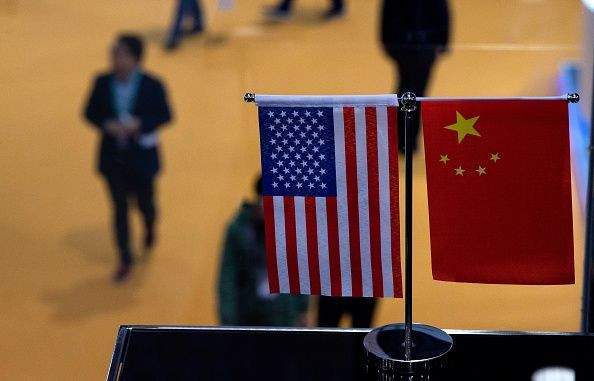Why Did The Stock Market Drop Again? Breaking Down This Week's Latest Plunge On Wall Street

President Trump on Friday attacked China on Twitter and "ordered" all U.S. companies to pull out of the country, leading the Dow to plunge over 600 points amid investor doubts that the trade war has no end in sight and that a global recession is looming.
The market had rallied after Federal Chairman Jerome Powell comments about interest rates but the uptick was short-lived after Trump's comments on Twitter sparked a selloff.
The Dow is down 573 points perhaps on the news that Representative Seth Moulton, whoever that may be, has dropped out of the 2020 Presidential Race!
— Donald J. Trump (@realDonaldTrump) August 23, 2019
John Brady, managing director at futures brokerage R.J. O’Brien & Associates, told the Wall Street Journal that the timing of the trade news was "remarkable."
"It puts tariffs front and center on a very important day for markets," Brady said.
Trump seemingly made light of the Dow's plunge, suggesting a longshot Democratic candidate dropping out of the 2020 presidential race was the cause.
The Dow is down 573 points perhaps on the news that Representative Seth Moulton, whoever that may be, has dropped out of the 2020 Presidential Race!
— Donald J. Trump (@realDonaldTrump) August 23, 2019
Wall Street has seen four consecutive weekly declines. The Dow finished the week down 1%, while the S&P 500 fell 1.4% and the Nasdaq lost 1.8%.
"The trade war is alive is well, and battles continue to be fought, and nobody knows how this is going to play out," Ed Keon, chief investment strategist at QMA, told TheStreet.com.
After markets closed Friday, Trump announced he was going to increase tariffs on $250 billion of Chinese goods from 25% to 30% and that the tariffs on the remaining $300 billion will go from 10% to 15%, which means markets could expect more volatility next week.
"This is going to be ping-pong for a while,” Sean O’Hara, president of the ETF division at Pacer Financial Inc., told the Journal. "That’s what we’re going to continue to see until we get a resolution, if we ever do. It’s probably going to drive the short-term ups and downs of the market."
Another issue of uncertainty for markets is whether Trump will really be able to enforce his "order" to get all U.S. companies to leave China.
Trump claims that he can do so under the International Economic Emergency Powers Act of 1977 (IEEPA). The law gives the president the power to regulate international commerce during a national emergency in response to any unusual or extraordinary threat to the country.
The China threat may not constitutes a "national emergency" and the courts will likely test the Trump administration on the issue.
© Copyright IBTimes 2024. All rights reserved.





















